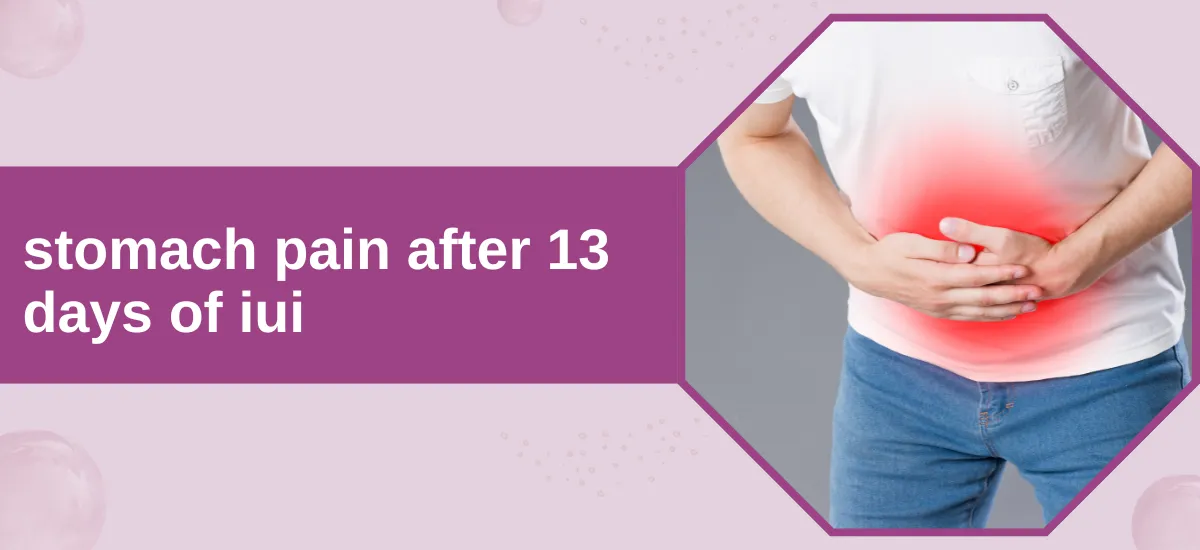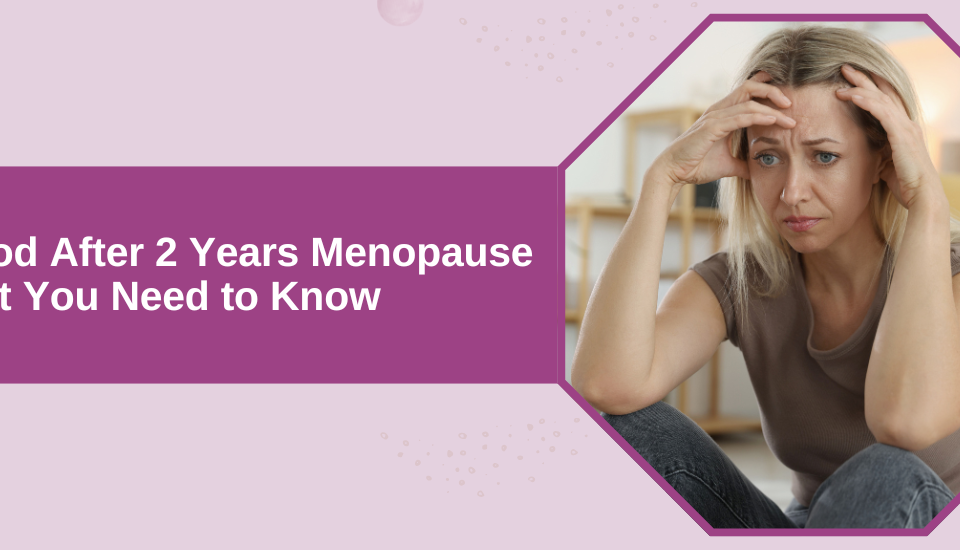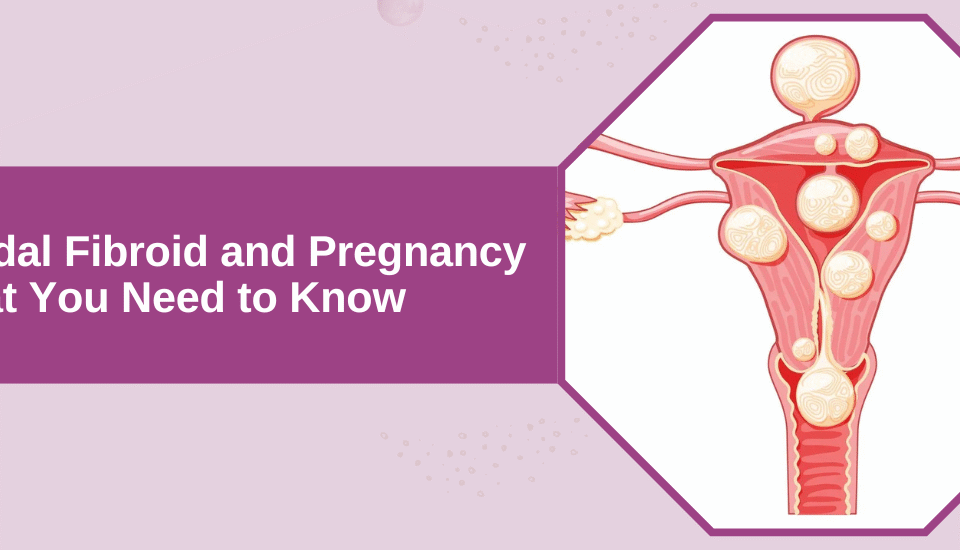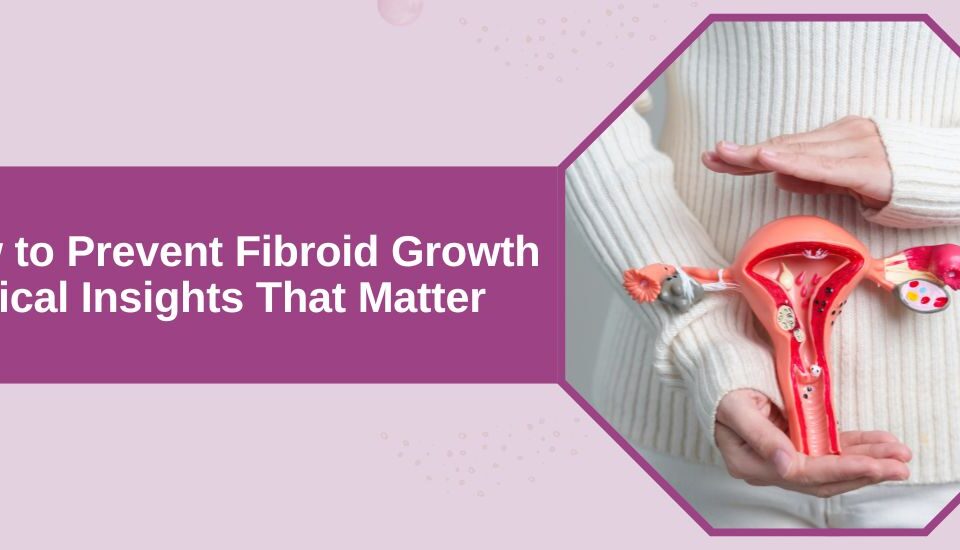- Have any questions?
- +91-98717 17305
- babiesandus12@gmail.com
Stomach Pain After 13 Days of IUI: Causes, Care

No Period 22 Days After IUI
February 17, 2025
Brown Discharge 14 Days After Embryo Transfer
March 18, 2025
It’s not uncommon for women to notice stomach pain after 13 days of IUI, and honestly, it can leave you wondering if it’s a promising sign or something you should worry about. At this point, stomach pain might just be your body reacting to all the hormonal shifts and possible implantation, but there are times when it can hint at complications that need a doctor’s eye.
Dr. Hrishikesh Pai, a leading fertility specialist in Babies and Us IVF centre in Mumbai, points out that after IUI, your body is basically in overdrive with all sorts of hormonal and physical changes. Sometimes, that just shows up as abdominal discomfort. The 13-day mark is especially interesting since it lines up with the possible implantation window and those early, sometimes unpredictable, pregnancy hormones.
Figuring out whether what you’re feeling is just par for the course or something more serious can be tricky. This guide breaks down what might be causing stomach pain during this sensitive time, flags the warning signs you shouldn’t ignore, and offers insights to help you get through this often nerve-wracking part of fertility treatment.
Understanding Stomach Pain After 13 Days of IUI
So, what’s actually normal? Lots of women report all sorts of abdominal twinges and aches 13 days after IUI—anything from mild cramping to more noticeable pain. It’s no coincidence that this happens right when your hormones are fluctuating and implantation could be happening (if things are going well).
Common Symptoms and Timing
Mild to moderate cramping is probably the most common thing people notice around day 13 after IUI. It usually feels like a dull ache, pretty similar to what you might get before your period.
Some describe it as little twinges or a kind of pulling low in the belly. Sometimes it jumps from side to side, sometimes it just hangs out in one spot.
Timing-wise, these symptoms often show up between days 10 and 14 after the IUI, which is right when implantation could be happening and your hormones are doing their thing.
Other symptoms you might see:
- Light spotting or random bleeding

- Bloating or feeling puffed up

- Breast tenderness or sensitivity

- Fatigue or sleepiness

- Mood swings or irritability

- Nausea or aversions to certain foods

Usually, the pain isn’t so bad that you need anything stronger than a heating pad or a bit of rest. Most women can go about their day as usual, even if they’re a bit uncomfortable.
Normal Versus Concerning Signs
Normal symptoms after IUI are things like mild cramping, light spotting, and just some general abdominal tenderness. Basically, it’s your body reacting to all those hormonal changes after the procedure.
As long as it’s not messing with your sleep or daily life, and you can ease it with rest or a hot water bottle, it’s probably nothing to stress over.
Warning signs you shouldn’t ignore include:
- Severe, sharp pain on one side of your abdomen
- Heavy bleeding with clots
- Fever over 38°C (100.4°F)
- Nausea and vomiting that just won’t quit
- Feeling dizzy or actually fainting
Sharp pain on the left side after IUI could point to something like ovarian hyperstimulation syndrome or even an ectopic pregnancy—neither of which you want to mess around with. These need a doctor, pronto.
If you’ve got pain along with shoulder pain or any signs of internal bleeding, get emergency help. That’s not something to wait out.
Possible Causes: Implantation, Uterine Lining, and Hormonal Changes
Implantation cramps happen when a fertilised embryo tries to get comfy in the uterine lining. This usually goes down 6–12 days after conception, which lines up pretty well with day 13 post-IUI.
The process can mess with tiny blood vessels in the lining, so you might get mild cramps and a bit of spotting—sometimes called implantation bleeding. It’s weird, but it’s normal.
Hormonal swings are a big part of this whole experience. Progesterone rises to help the uterine lining, but can also make you feel bloated or mess with digestion.
Meanwhile, estrogen can cause water retention and even make your breasts feel sore. These shifts are basically your body’s way of prepping for a possible pregnancy.
Fertility meds and procedures themselves can add to the discomfort for a bunch of reasons:
| Cause | Description | Timing |
| Ovulation stimulation | Ovaries get bigger from the meds | Days 1–14 post-IUI |
| Uterine irritation | Catheter used during IUI | Days 1–3 post-IUI |
| Progesterone support | Hormone supplements | Throughout luteal phase |
Your uterine lining is still thickening at this point, which can make you feel full or a bit pressured in your lower belly. That’s actually a good sign if you’re hoping for implantation.
Post-procedure inflammation can hang around for up to two weeks after IUI. That’s just your body healing, and it might show up as mild cramping or some tenderness in the area.
Potential Complications and When to Seek Medical Advice
There are a few things that can go wrong after IUI, and some of them do need urgent attention. Stomach pain after 13 days of IUI could, in rare cases, point to issues like OHSS, pelvic infections, or ectopic pregnancy—none of which you want to ignore.
Ovarian Hyperstimulation Syndrome (OHSS) Explained
OHSS happens when the fertility meds push your ovaries a bit too far. They swell up and get sore, sometimes causing pretty nasty stomach pain.
Research shows OHSS can leave ovaries swollen and painful, especially if you’re doing fertility treatment. Symptoms can kick in just days after the procedure.
Mild OHSS might look like:
- Some bloating
- Mild pelvic pain
- Sudden weight gain
- Nausea
But if you notice these severe signs, get help:
- Packing on over 2kg in just 24 hours
- Severe stomach pain
- Can’t stop vomiting
- Trouble breathing
If you’re in the severe camp, call your doctor or clinic right away. IVF clinics are usually on top of this and monitor high-risk patients pretty closely.
Recognising and Managing Pelvic Infections
Any time a catheter is involved, there’s a risk of infection—even if it’s small. Sometimes, it doesn’t show up right away but can pop up days after the procedure.
The IUI process uses a catheter through the cervix, and that’s a possible route for bacteria. It’s not super common, but it happens.
Watch for these signs of infection:
- Fever over 38°C
- Weird or unusual vaginal discharge
- Really strong-smelling discharge
- Pelvic pain that keeps getting worse
Antibiotics usually sort it out, but don’t wait around—call your clinic if you notice these. The sooner you treat it, the less chance it messes with your fertility down the road.
Leaving a pelvic infection untreated can be risky and might even make future fertility more complicated. Early treatment is always the safer bet.
Distinguishing Severe Pain or Ectopic Pregnancy
Now, if you get sudden, sharp pain, especially on one side, it could be something serious like an ectopic pregnancy or a problem with your ovaries. Sharp pain on the left side after IUI isn’t something to brush off.
An ectopic pregnancy is when the embryo implants somewhere outside the uterus. It’s rare but dangerous and needs immediate medical attention.
Big red flags include:
- Sudden, severe belly pain
- Pain in your shoulder
- Dizziness or actually fainting
- Heavy bleeding
Sometimes, a cyst on your ovary can burst and cause this kind of pain, too. Fertility treatments do make cysts a bit more likely.
If any of this sounds familiar, don’t wait—get to emergency care. Delaying treatment can lead to serious complications and even threaten your fertility in the future.
Expert Guidance from Dr. Hrishikesh Pai and IVF Centres in Mumbai
Dr. Hrishikesh Pai really puts a lot of focus on personalised care for every patient going through fertility treatment. Honestly, no two people have the exact same IUI recovery—what one person feels might be totally different for someone else. That’s why individual medical advice matters so much.
Some of Mumbai’s top IVF centres are pretty thorough with their post-treatment care. The specialists there keep a close eye on patients, watching for any signs of trouble and stepping in fast if something’s not right.
When should you reach out to your fertility clinic?
- Pain that sticks around for more than 48 hours
- Fever or chills (never ignore these!)
- Bleeding that doesn’t seem normal
- Nausea and vomiting that just won’t let up
Most fertility clinics have solid protocols for preserving fertility, and they make sure patients know exactly what warning signs to look for. Plus, they usually run 24-hour helplines in case something urgent comes up—super reassuring, honestly. Skilled fertility specialists are pretty good at telling the difference between normal discomfort and something more serious. They’ll give you advice and treatment options that are actually based on your unique situation and medical background, not just some generic checklist.
Experiencing discomfort? Contact Babies and Us IVF Center for personalized guidance during your IUI journey.
Conclusion
Stomach pain after 13 days of IUI can be a perfectly normal response to the hormonal shifts and physiological changes happening in your body. Whether it’s a sign of implantation or simply a side effect of the procedure, staying informed and proactive is the best way to navigate this period.
At Babies and Us IVF Center, our team is here to guide you every step of the way. Dr. Pai emphasizes, “The two-week wait can be emotionally challenging, but remember, your body is doing incredible work. Trust the process and seek help when you need it.”
If you’re ever in doubt, don’t hesitate to reach out to your fertility specialist for clarity and reassurance.
Ready for expert advice? Schedule an appointment with Babies and Us IVF Center today to ensure you’re on the right track.
Frequently Asked Questions
Q: When does stomach pain after IUI occur?
A: Stomach pain may occur anytime during the two-week wait, often peaking around implantation (6-12 days post-IUI).
Q: How long does stomach pain last after IUI?
A: Mild cramps usually last a few hours to a couple of days. If it persists, consult your doctor.
Q: Can stomach pain indicate pregnancy?
A: It’s possible. Implantation cramps or early pregnancy symptoms can cause stomach pain, but it’s not definitive.
Q: When should I be concerned?
A: Severe pain, heavy bleeding, or symptoms like fever or dizziness should be evaluated immediately by your doctor.
- American Society for Reproductive Medicine – Understanding IUI
- Mayo Clinic – Fertility Treatment Overview
The information shared in this content is for educational purposes only and not for promotional use.




